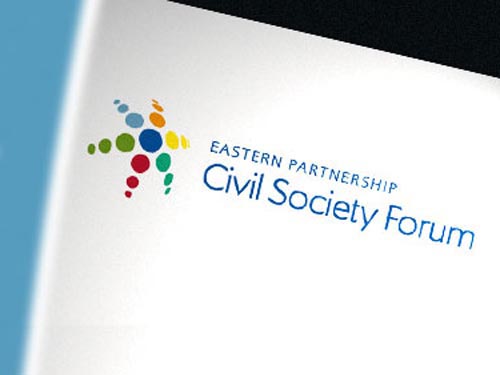Poland and Germany were both initiators and drivers of a New Eastern policy linked to the Eastern neighborhood and Russia/Soviet Union.
Andrei Yahorau: EaP Civil Society Forum in Batumi either brings reforms or becomes formalization

The sixth meeting of the Eastern Partnership Civil Society Forum (EaP CSF) that is to take place on November 20-21 in Batumi will certainly be more lively and dynamic that the two previous ones.
On the threshold of the sixth meeting of the EaP CSF Andrei Yahorau, the Chairman of the Coordinating Committee of the Belarusan National Platform of the Eastern Partnership Civil Society Forum (BNP EaP CSF), shared his opinion on the main goals of the event with the EuroBelarus Information Service.
According to Andrei Yahorau, the main topic of the EaP CSF is the European integration of the Eastern Partnership countries, “primarily, those countries that signed the EU Association Agreement”. However, as it became obvious in the course of this year, integration is highly connected with the challenges of the safety:
“If these challenges won’t get an adequate answer today, I think that the whole Eastern Partnership can be given up for lost; it will turn into a bureaucratic and very formal initiative. That is why the Forum actualizes today’s most important problems of the Eastern Partnership.”
Besides, Andrei Yahorau notes, the EaP CSF itself is on the threshold of quite significant decisions regarding its own structure and further development:
“One strategic period that was planned for 2012-2014 has ended, now the new one — for 2015-2017 — starts. A new strategy of the EaP CSF that, of course, sets new goals, is being adopted. And the way the discussion of this strategy will be developing will define the possibilities of the Forum’s later development. Unfortunately, throughout all these years the EaP CSF hasn’t taken the place that Belarusan National Platform counted on. I.e. the Forum didn’t become the institute that would be actively affecting the agenda of the Eastern Partnership, its format, mechanisms, and ability to draw national civil societies into active work and the work of the Eastern Partnership. Of course, it exists as a place; however, the role of the civil society is still insignificant and, most likely, formal and ritual. We can hardly say that the civil society is really included in the development of the initiative. There are also problems with bureaucratized approaches of the Eastern Partnership and the countries-members of the EU towards the EaP as well as problems in its development logic, i.e. reluctance to see civil society as an equal partner in these relations. But we can have a lot of complaints about the civil society, which is to a much degree a non-initiative in achieving its goals, insist on its interests, and actively influence the development of the EaP initiative.”
In the Forum itself “we spend lots of efforts for procedural issues and the fight of a number of groups, which, for instance, were counteracting the expansion of influence of the national groups,” Andrei Yahorau says:
“Now, in the new strategy, it is suggested to give a lot of attention to the institutional role of the national platforms, their political influence at the national level, influence on the agenda of the Eastern Partnership, and so on.”
The problem of internal reform of the EaP CSF, which is aimed at optimization of the Forum’s managing structure, and shortenings of the Steering Committee members might be also resolved in Batumi. However, both the representation of the National Platforms and the working groups within the Steering Committee will be preserved, but only to increase work efficiency of the EaP CSF:
“If this reform is successful, then, I think, the voice of the National Platforms and National Delegations at the level of the EaP CSF will get stronger, and topical work will become more close to the national agenda. And this work won’t be stopped after the participants of the Forum change every year. I believe that the managing bodies formed according to new principles will be more effective in coordinating the work of the EaP.”
However, Andrei Yahorau marked, the solution of the above mentioned problems depends on whether the participants of the EaP CSF understand the importance of these problems and whether they are ready to take some radical steps:
“It depends on how strong the so-called “conservative party” among delegates is, what is the balance between it and a reformist party. But I can say with certainty that this Forum will be more dynamic, more lively and interesting that the two previous meetings. We are either to face the further ritualization of the EaP CSF and preservation of status quo that has developed within the former years, or the EaP CSF will get a different, qualitative character.”
Others
-
Uladzimir Matskevich: The sooner the "Union State" is denounced, the better for Belarus
Not only does the “Union State” undermine the establishment of civilized relations with Europe, but it hinders the possibility of normal relations between Belarus and Russia.
-
Uladzimir Matskevich: The regime can no longer control the situation in the country
The authorities are unable to prolong the social contract with the people: there is no way out of the social crisis.
-
Press release of the BNP in connection with the next round of the dialogue in the format of the EU-Belarus Coordination Group
Belarusan National Platform of the Eastern Partnership Civil Society Forum welcomes the dialogue process in the format of the EU-Belarus Coordination Group, the third round of which was held in Minsk on 3-4 April 2017.
-
Hennadiy Maksak: Europe must react adequately to the events in Minsk
A new wave of political repressions should make the EU return to tougher policy towards the Belarusan regime.








Comments
From farewell to a new Eastern policy and towards a new development
Poland and Germany were both initiators and drivers of a New Eastern policy linked to the Eastern neighborhood and Russia/Soviet Union.